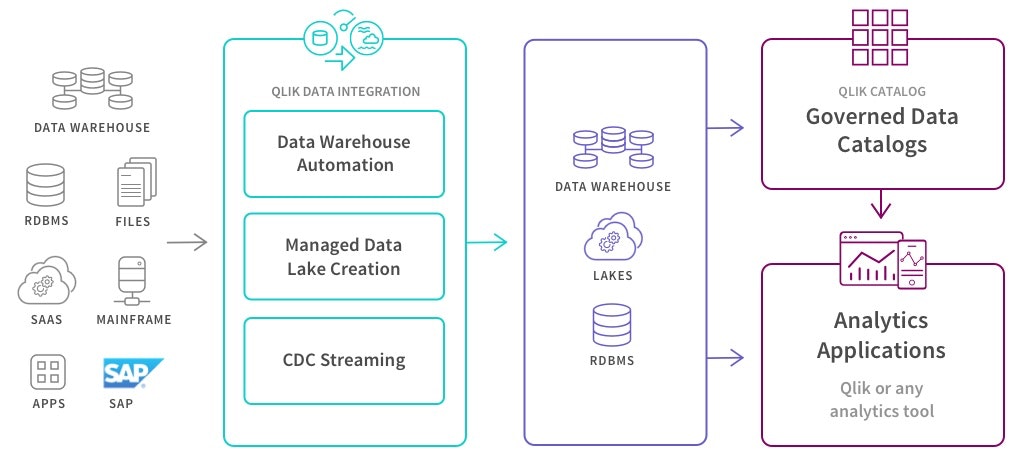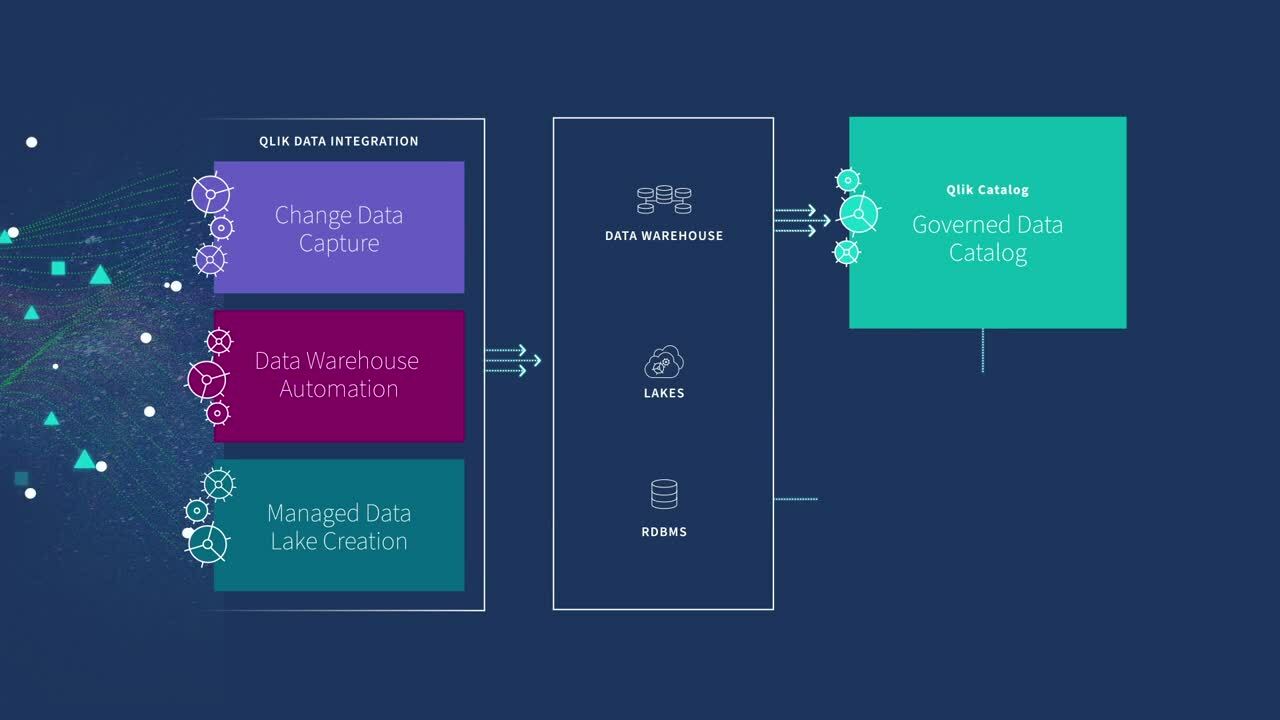DATA INTEGRATION PLATFORM
Learn about Qlik Data Integration.
What is a data integration platform?
A data integration platform allows IT professionals to bring together data from multiple sources and provide a complete, accurate, and up-to-date dataset for BI, data analysis and other applications and business processes. The success and cost of critical data integration (DI) initiatives such as data replication, ingestion and transformation depends on which DI platform is selected.

A data integration platform is more than a simple database migration tool – it's a set of technologies that help you create agile data pipelines. A complete data pipeline should include a data ingestion framework for connecting to different applications and systems, database replication software for copying and converting database objects and data into other formats, data transport architectures, model-driven configuration tools to design, build and manage a data lake or data warehouse, and a smart, enterprise-scale data catalog.
Qlik’s modern approach to data integration and analytics can deliver more analytics-ready data by taking data infrastructure to the next level.
Key Features to Look for in a Data Integration Platform
Instead of relying on embedded DBMS or cloud vendor tools and manual ETL coding to implement data integration tasks, more firms are choosing to leverage database and cloud-agnostic data integration platforms. With one unified data integration platform, you can extract, filter, transform, distribute, aggregate, model, index and synchronize data across multiple data stores faster and more efficiently. In addition to providing support for a variety of data formats and data sources and targets, here are some key features to look for in a data integration platform:
- Low-impact change data capture. Log-based change data capture technology enables low-latency data replication and real-time data-ingestion without impacting the performance of source systems.
- Ease of use. User-friendly graphical user interfaces and task-oriented wizards simplify configuration, accelerate implementation, allow for continuous refinement and lower the total cost of ownership of a data integration platform. Manual coding should not be required.
- Scalability and flexibility. Being able to scale up as your data volumes grow and support rapidly evolving use cases and new technologies are essential capabilities for big data integration projects. This includes enterprise-wide monitoring and control of related processes.
Popular data integration platform resources

A Unified Data Integration Platform for the Agile Enterprise
At Qlik, we continue to redefine "what is data integration" for the data-driven enterprise, developing innovative tools and technologies that are powerful, easy-to-use, and versatile. Enterprises are collecting and analyzing a greater volume and variety of data than ever before, and they need a data integration tool that allows them to not only work with a variety of data formats and data storage platforms—in dynamic, hybrid computing environments—but also streamline data pipeline development. Qlik Data Integration does just that.

Our universal and real-time data integration platform includes a robust, flexible data ingestion framework, next-generation change data capture technology, automated creation and operation of data warehouses and lakes, and a self-service catalog that offers on-demand access to analytics-ready data. Together, Qlik can give everyone in your business easy access to the latest and most accurate data by vastly accelerating the discovery and availability of real-time, analytics-ready data in the cloud of your choice.
